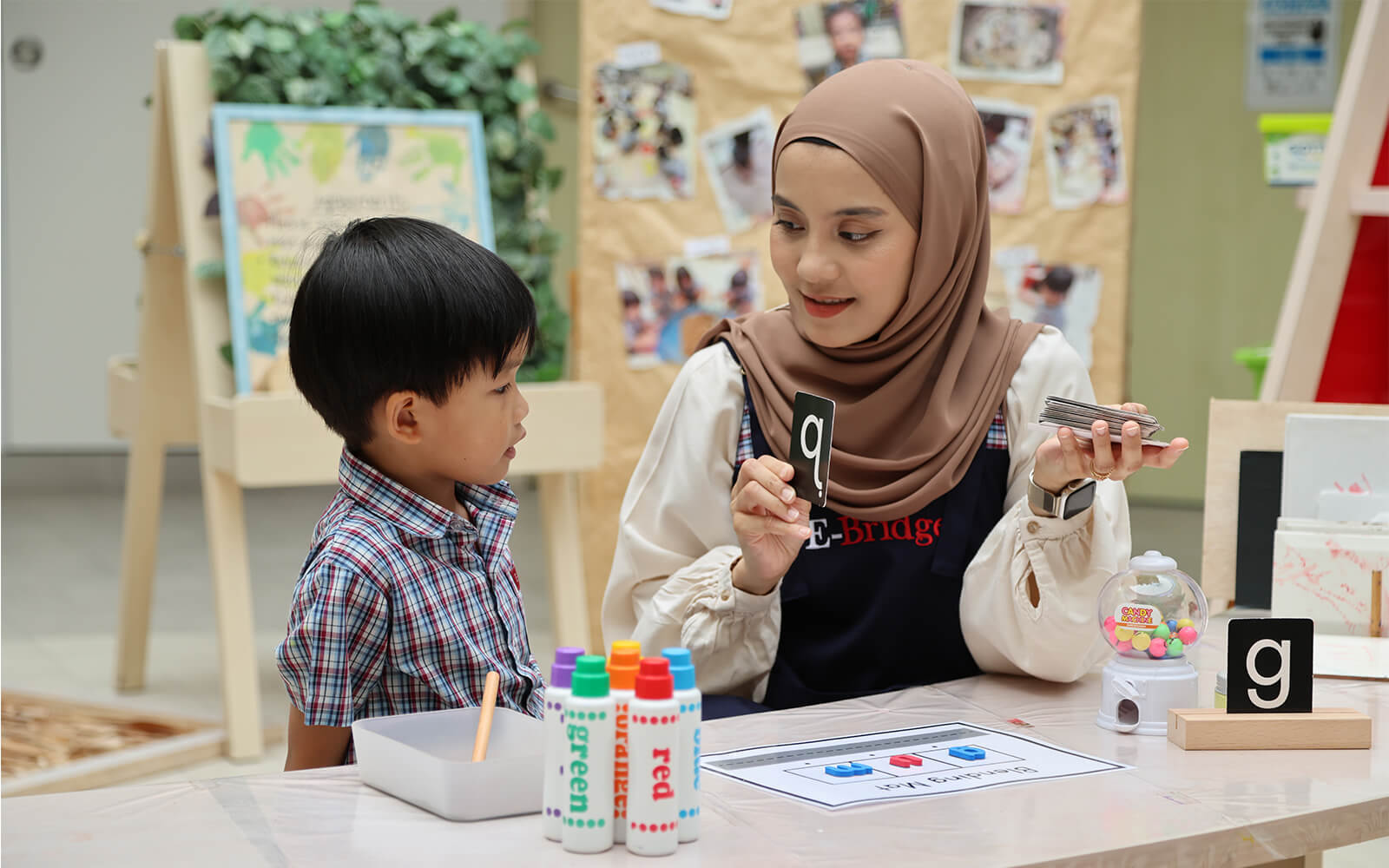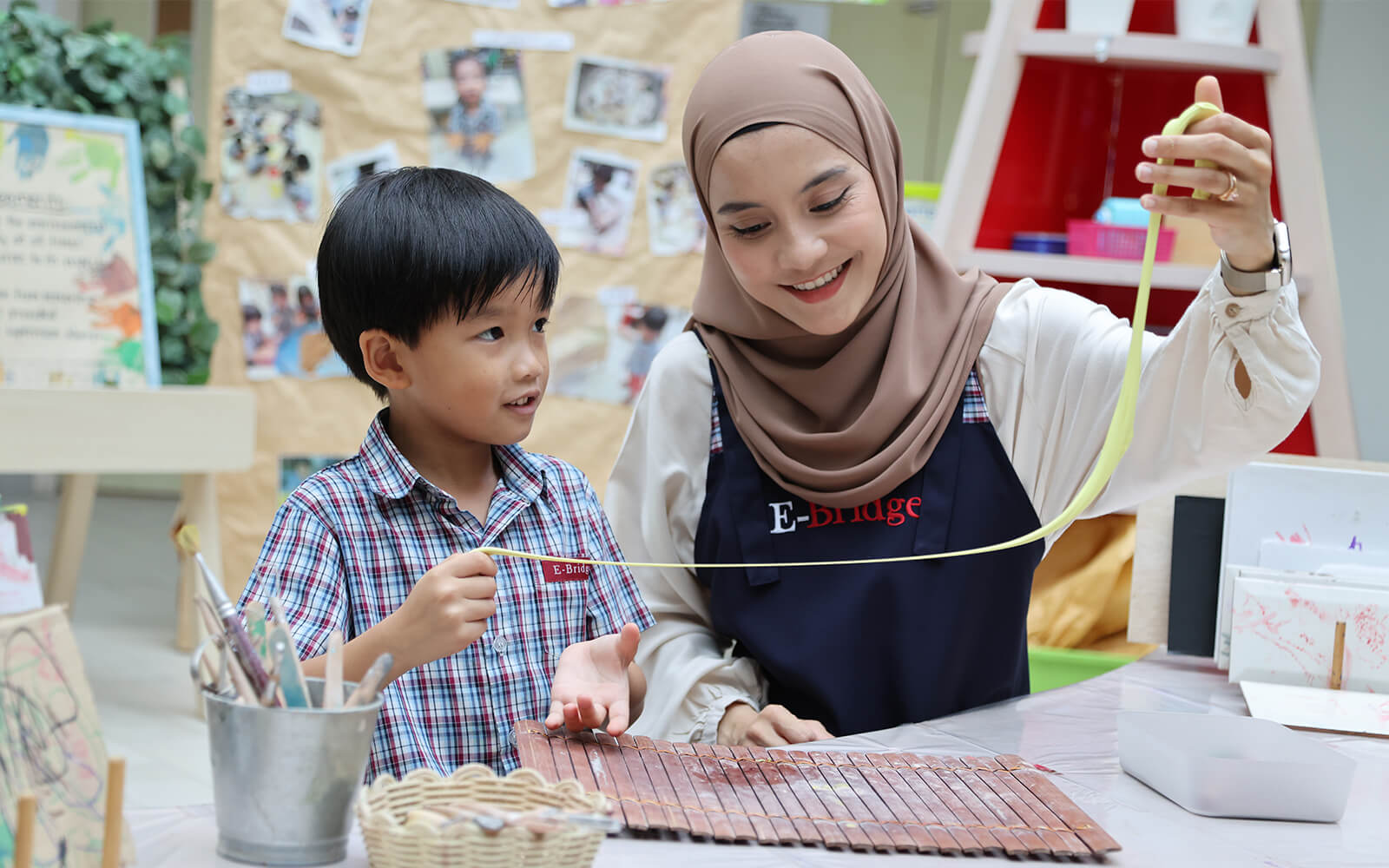Key Takeaways
- Routines help children feel safe and secure. Predictable rhythms give young children a sense of stability, especially in new or unfamiliar environments.
- Simple daily routines build independence. Tasks like handwashing or packing away toys support autonomy and confidence through repetition.
- Transitions become smoother with structure. Gentle cues and consistent routines help children navigate change with calm and ease.
- Relationships grow through routine. Daily rituals create moments of connection that strengthen trust between children and educators.
Exploring the Importance of Routines in Early Childhood

For young children, each day brings a world of new experiences. From navigating friendships to exploring unfamiliar spaces, early childhood is full of change and discovery. Amid this constant motion, the steady rhythm of daily routines provides a comforting sense of what comes next.
Rooted in the Reggio Emilia approach, E-Bridge Pre-School treats routines as thoughtful, caring frameworks—not rigid schedules. Our educators understand the importance of routines in early childhood, from nurturing emotional security and building confidence to creating a strong sense of belonging. Here’s how this philosophy shapes our approach.
1. Offers Predictability in a Busy World
Children tend to feel the safest and most at ease when their day follows a familiar and predictable pattern. Whether it’s the sequence of their daily schedule or knowing who will greet them in the morning, predictable routines give young children a reassuring sense of control.
At E-Bridge Pre-School, our curriculum begins and ends each day with familiar rituals, such as morning welcomes, group time, and quiet reflections, helping children ease into their day with confidence. These daily rhythms and structured preschool environment provide a steady foundation, allowing children to feel calm, secure, and ready to explore.
2. Everyday Routines Support Independence
Young children naturally want to do things on their own, and daily routines provide safe, supportive opportunities for them to try. Simple tasks—like washing hands before meals or tidying up toys—may seem small, but they give children a chance to make choices, take initiative, and develop essential life skills.
By gently encouraging these acts of responsibility, we help children build confidence, feel capable, and take pride in their growing abilities. At a high-quality preschool in Singapore like E-Bridge, these moments of independence are always guided, celebrated, and supported with care.
3. Calm Transitions Help Children Feel Safe
Change can feel overwhelming for young children, especially when it happens suddenly. That’s why smooth transitions—like moving from playtime to lunch or from indoors to outdoors—are so important.
At E-Bridge, we use soothing cues like songs, visual prompts, and gentle reminders to help children adjust. These strategies give children time to prepare emotionally and feel secure. It’s another way we emphasise the importance of routines in early childhood, supporting not just structure, but also emotional safety and well-being.
4. Routines Deepen Relationships
Daily routines are full of quiet moments that strengthen connection. A warm hello at the door, a familiar song before mealtime, or a quiet check-in during storytime can all help children feel seen, heard, and cared for.
At E-Bridge Pre-School, we know that emotional security in early childhood grows through trusting relationships. When routines are consistent and responsive, they create a safe, predictable space where strong bonds can form between children and educators, supporting both learning and belonging.
5. Routines Create Space for Learning and Growth

When children feel secure, they’re more likely to take healthy risks, like trying a new activity, asking for help, or expressing a big feeling. That sense of safety begins with routine.
By supporting focus, resilience, and emotional regulation, daily rhythms lay the groundwork for learning that lasts. Whether your child is just starting their preschool journey or preparing for the next stage, the importance of routines in early childhood remains the same: they help children feel ready, confident, and deeply supported.
Gentle Structure, Strong Foundations at E-Bridge Pre-School
Children don’t need every moment to be planned, but they do need to feel secure in what to expect. Daily routines provide that gentle sense of structure, helping young children feel grounded, capable, and connected in a world full of new experiences.
At E-Bridge Pre-School, we honour the importance of routines in early childhood—not just for what they teach, but for how they make children feel. Our approach blends structure with warmth, supporting children’s learning, confidence, and well-being from the very start.
Enrol your child in kindergarten near you today! Let them discover, explore, and grow through the joy of learning.
Register your interest here.
